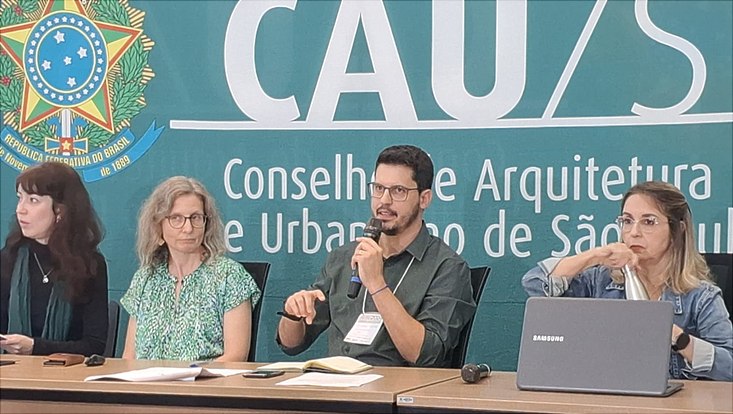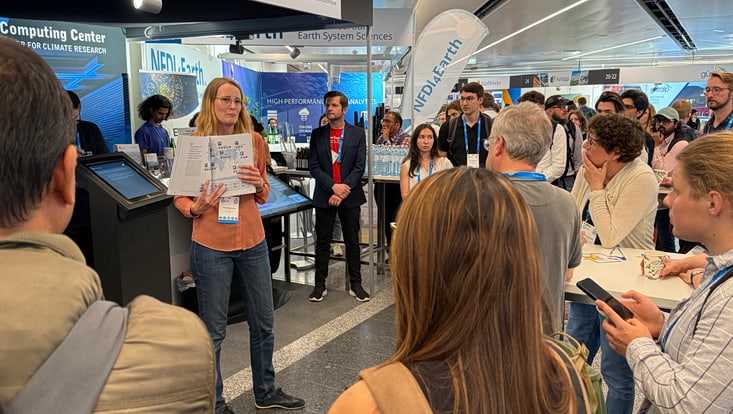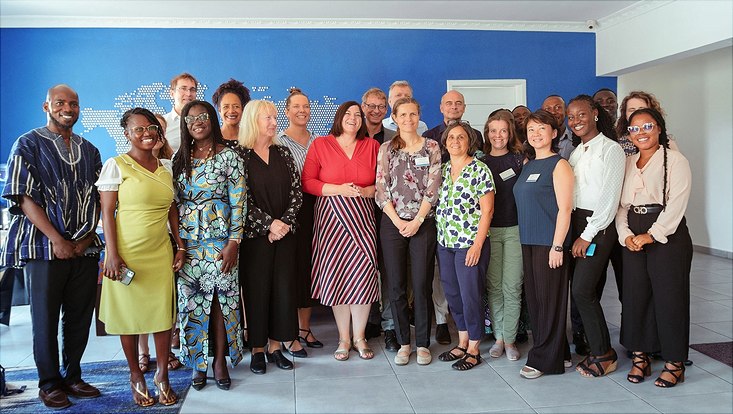and Society (CLICCS)
"Sowing the seeds of change"
2 December 2024

Photo: Eduardo Gonçalves Gresse/UHH
Hamburg-based research on the international stage: sociologist Eduardo Gonçalves Gresse presents the Hamburg Climate Futures Outlook 2024 in São Paulo – and there could soon also be a Brazilian edition of the study.
Eduardo Gonçalves Gresse was playing on his homecourt: the sociologist from the Cluster of Excellence “Climate, Climatic Change, and Society” (CLICCS) recently spent two weeks in his hometown, São Paulo, Brazil. There he had the opportunity to present the Hamburg Climate Futures Outlook 2024 – which includes a case study focusing on the Brazilian metropolis – at the University of São Paulo’s Instituto de Estudos Avançados (IEA-USP). “In São Paulo, you can clearly sense the climate crisis – there’s often too little water, or too much,” says Gresse. There are also frequent heatwaves, droughts and torrential rains. Earlier this year, Gresse had a stay as a visiting researcher at the University of São Paulo and conducted field research, e.g. in the city’s poorer districts.
As a member of the research group “Ambiente e Sociedade” (Environment and Society), Gresse co-organized an event at the IEA-USP that brought together researchers from various disciplines and a representative of the city’s climate office, who is responsible for implementing its new climate plans and who shared insights into her work. “When it comes to climate protection, all I see are plans and memoranda of intent, which are rarely implemented and are frequently used as political window-dressing,” says Gresse. “As the representative explained, however, this can also mean sowing the seeds of change.”
Gresse also engaged in discussions with old and new international colleagues, e.g. on climate change adaptation measures. “We had a number of topics in common, like flood protection, which is also an important aspect in Hamburg.” What those he spoke with appreciated most: that the Hamburg-based study would reach a larger audience, and the fact that “we don’t just look at scenarios that are theoretically possible, but instead describe truly plausible ones that can promote or hinder climate protection.” After the conversations, Brazilian researchers are considering using a similar approach – using the Climate Futures Outlook as a role model.
Another highlight for Eduardo Gresse: this year’s São Paulo Meeting, under the title “Climate Change – The Challenge of Global Cooperation for Urban Adaptation,” which was organized by the School of Architecture and Urbanism at Mackenzie University in São Paulo. The conference attracted researchers from various disciplines, from Brazil and around the globe, as well as representatives of the government, civil society and private sector. “When these groups come together, you can see time and time again which conflicts of interest remain.” says Gresse.
About
Both events were organized with the German-Brazilian network KLIMAPOLIS, which is coordinated by Brazil’s newly-founded National Institute of Science and Technology (INCT).
Further information
Hamburg Climate Futures Outlook 2024
Participating institutions
Institudo de Estudos Avançados da USP
Mackenzie Presbyterian University
KLIMAPOLIS
Dr. Eduardo Gonçalves Gresse, born and raised in São Paulo, is a Substitute Professor of Sociology and pursues research into sustainability governance and ecological transformation, with a focus on global consumption patterns, climate justice, and sustainable climate change adaptation. In 2023, he published a book on the implementation of the UN’s Agenda 2030 for sustainable development in Brazil.


